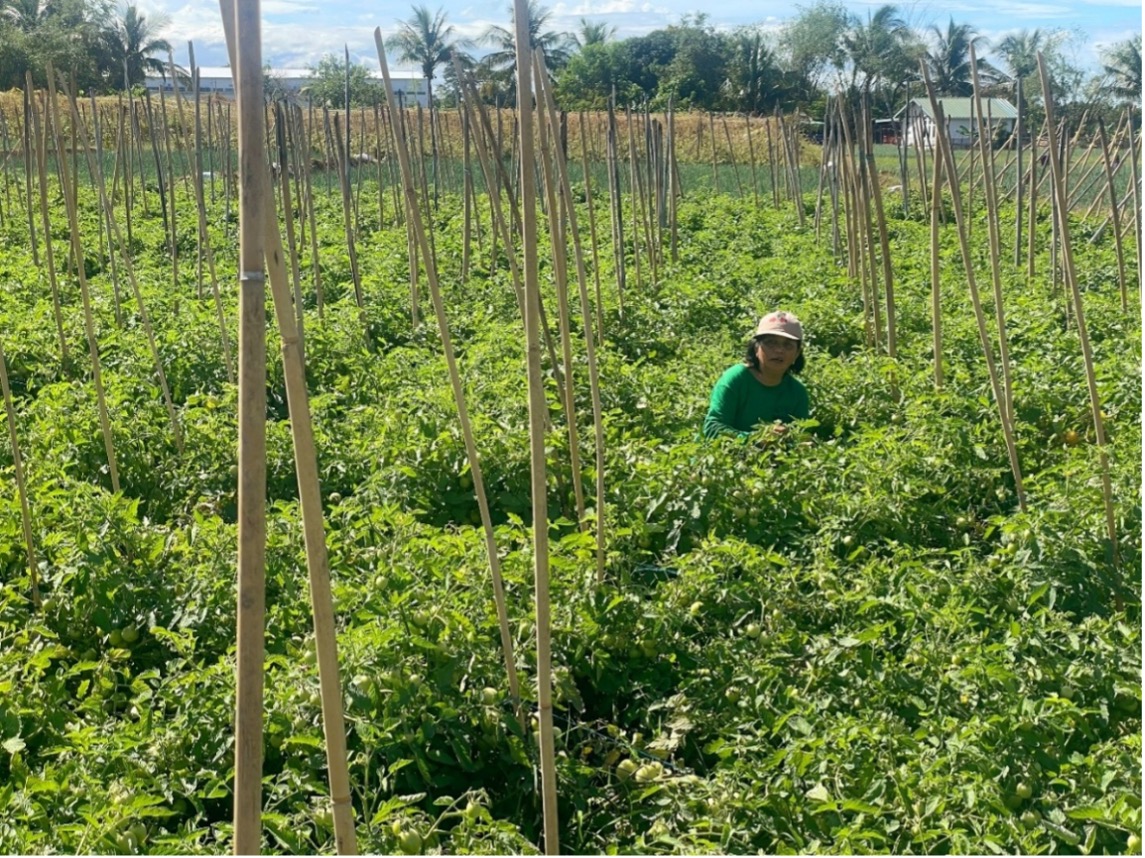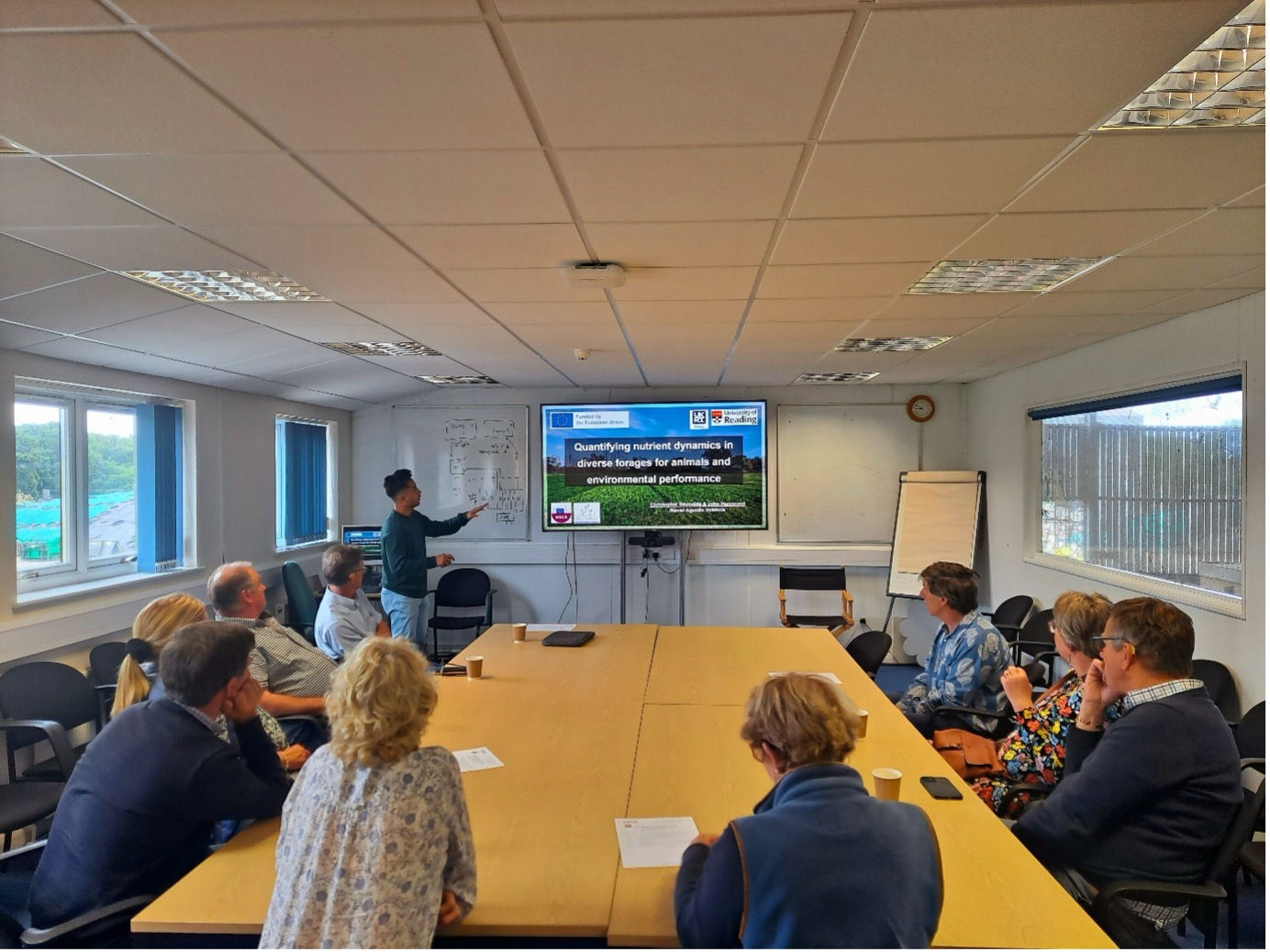It's not you, it's me! How can Farmers and Scientists find a common language?
It's not you, it's me! How can Farmers and Scientists find a common language?
I grew up in a family of farmers back home in the Philippines. My grandparents, parents, uncles, and aunts were all involved in farming. On my father’s side, almost everyone in the extended family worked the land in some way. That strong connection to agriculture is a big part of why I chose this path myself. It eventually led me to pursue a PhD in sustainable agriculture.
Over time, though, I started to notice something that concerned me. Very few of my cousins were interested in becoming farmers. At first, I thought it was just within our family. But I began to see it happening across our village too. The farmers were getting older, and younger people weren’t stepping in to take their place. Agriculture was being seen as tough, risky, and not worth the effort. Sadly, this isn’t just a local issue. Globally, the data tells a similar story. Ashworth (2020) notes that the average age of farmers is around 60, including in developing countries (Vos, 2014). Many of them are women who have limited access to formal education. In England, as of 2024, about 38 percent of farmers were aged 65 or older. Another 30 percent were between 55 and 64. Just 15 percent were under the age of 45, and only 5 percent were younger than 35 (DEFRA, 2024).

Age is often seen as a hurdle when it comes to adopting new farming practices. Sometimes that’s true. Older farmers might be less likely to take risks or try new methods, especially when they’ve relied on the same ones for years. But from what I’ve observed, especially during my secondment with FarmED and Cotswold Seeds in the UK, the situation is more complicated than that. It’s not just about how old someone is. It’s also about how information is shared, and whether it really speaks to the everyday experiences of farmers.
FarmED is an educational organisation focused on regenerative agriculture. They run practical courses, lunchtime talks, and guided farm walks to help farmers and the public learn about ways to improve soil health, increase biodiversity, and use fewer chemical inputs. The work they do creates important links between research and hands-on practice. But even in such an inspiring setting, some big questions kept coming up. During one of the farm walks, I heard farmers ask things like, “Can this work on a bigger scale?” or “Is this going to be profitable for my kind of farm?”
These were not smallholders. Most of the farmers had large operations and years of experience. They weren’t rejecting the ideas, but they were cautious. Even after seeing success stories and solid research, they were still unsure. That surprised me. I had always believed that seeing was enough to convince people. But in that moment, I realised it takes more than a good demonstration. Farmers need to feel that the ideas are relevant, practical, and trustworthy.

This raised a deeper question for me: why is there hesitation, even when the benefits seem clear? I think part of the problem lies in how we, as researchers or scientists, often approach farmers. Too often, communication flows in one direction: from experts to farmers. We assume that because we have data, trials, and proven outcomes, farmers should be eager to adopt what we suggest. But farming is not a lab or trial plots. It’s messy, unpredictable, emotional, and deeply personal. What works on one farm might not work on another. And when farmers are told to change without being genuinely heard or involved, resistance is a natural reaction.
At the Groundswell event, one of the leading gatherings for regenerative agriculture in the UK, I attended a talk that really stuck with me. The speaker talked about the need to treat farmers as partners or ‘co-creators’ in the learning process, not just people who receive advice. This means listening first, understanding their goals, and building on what they already know. It also involves acknowledging the value of their practical experience and incorporating it into research and extension activities.
When we start building relationships rather than just delivering information, everything changes. Farmers are much more open to trying new approaches when they feel like their voices are being heard. It’s about working together, not handing down solutions. Trust becomes the foundation. And empathy makes the conversation more meaningful.
So yes, age plays a role. But it's only one part of a much larger picture. If we want science and innovation to truly make a difference in agriculture, we have to go beyond simply delivering information. We need to connect, collaborate, and build trust with the people working the land every day. Because the real challenge isn’t just passing on knowledge. It’s making sure that knowledge feels relevant, grounded, and meaningful to those who matter most, the farmers themselves.
Written by Raniel Valencia.
Vos, R. (2014, February 4). Is global food security jeopardised by an old age timebomb? Global Development Professionals Network. The Guardian .
Ashworth, G. (2020, November 24). The ageing farmer time bomb and how we can turn it around [Talking Crop]. New Food Magazine .
Department for Environment, Food & Rural Affairs (DEFRA). (2024, November 21). Agricultural workforce in England at 1 June 2024. GOV.UK .